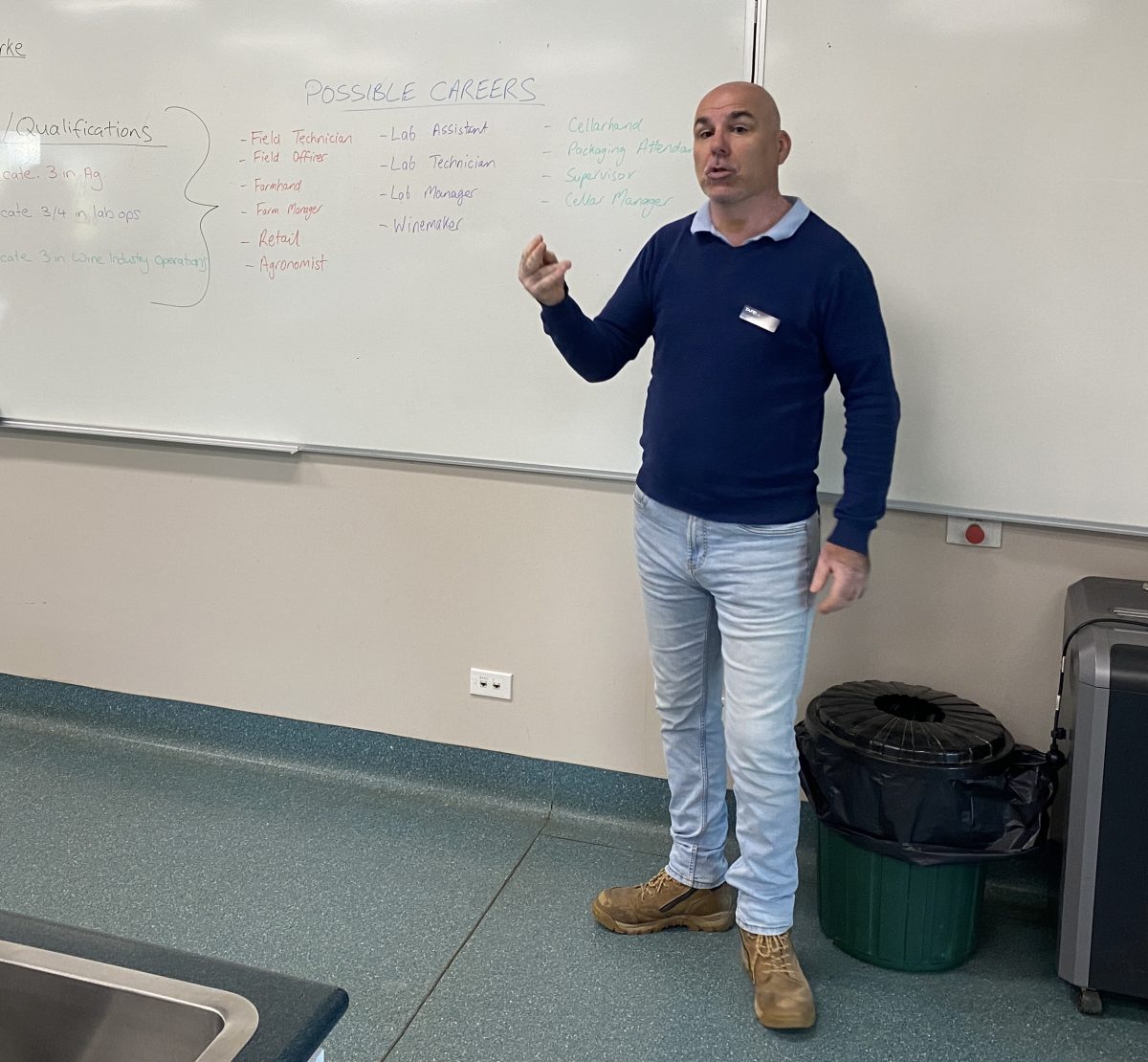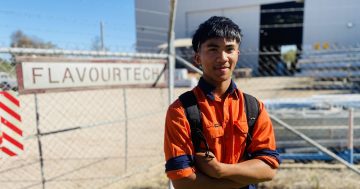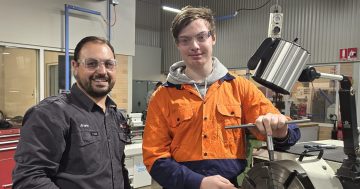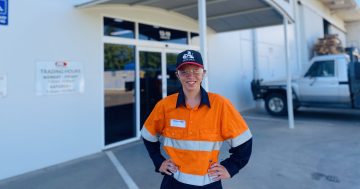
Year Nine students Alicia Newman, Madisyn Sarkis and Nandini Patel are considering a career in agriculture. Photo: Oliver Jacques.
Much has been made of the dire labour shortage in the agricultural sector, but this was framed as a golden opportunity for young people at an event in Griffith on Wednesday (22 May).
Year Nine and 10 students at Murrumbidgee Regional High School attended a one-day workshop which highlighted the benefits of working in the industry, hosted by research body AgriFutures Australia, TAFE NSW and Training Services NSW.
TAFE teacher Frank Alampi encouraged participants to consider doing a Vocational Education and Training (TVET) course in areas such as winemaking while they were still at school.
“The wineries are always looking for casual staff during vintage,” he said.
“If you’ve already got a TAFE qualification, they’ll look at you and say, ‘Great, you’ve got the skills we need already’ … If you do a gap year, you can make fantastic money, over $1000 a week straight out of school.”
Workshop participant Alicia Newman, 15, said a career in farming could be a lot more glamorous than many people thought.
“I’ve helped my dad run one of the largest irrigation systems in the Southern Hemisphere, on our farm in Darlington Point,” she said.
“We’ve grown citrus, grapes and almonds. It’s hard work but it’s rewarding and fun.”
Nandini Patel, 15, said that while many girls didn’t consider a career in agriculture in the past, things were changing.
“Some girls might think of farming as being too hands-on and dirty,” she said.
“But there are no stereotypes anymore, you can go for any jobs … I’d like to work out on a farm; I love animals.”

Frank Alampi highlighted the benefits of a TAFE course. Photo: Oliver Jacques.
Peak body the National Farmers Federation says the food supply chain in Australia suffers from a shortage of 172,000 workers. This means that employers are now offering more money and better conditions to attract scarce labour.
“The Riverina-Murray agriculture industry is booming and with that growth comes strong demand for skilled workers,” head TAFE teacher Rob Harris said.
“This event will help inspire many of these students to continue their studies at TAFE NSW and forge successful careers in agriculture.”
During the career day, students took part in workshops in the laboratory, which included water testing and leaf testing. They also visited prominent Griffith agribusinesses, such as the Aquna Murray Cod Farm, Piccolo Family Farms and the grape distillery Tarac.
Abbey O’Callaghan of AgriFutures Australia said the workshops were developed in response to recommendations from a report her organisation produced that emphasised the need to broaden the conversation about roles in the industry.
“Some of the world’s biggest challenges are directly related to agriculture: food security, sustainability, and climate change,” she said. “The Ag Industry Days challenged the idea that agriculture is just farming and showcased to students the opportunities in the industry right on their doorstep.
“Importantly, we wanted to inspire students to embrace STEM and agricultural subjects as they progress into their senior school years.”
More information about vocational agricultural courses can be found on the TAFE NSW website.














